|
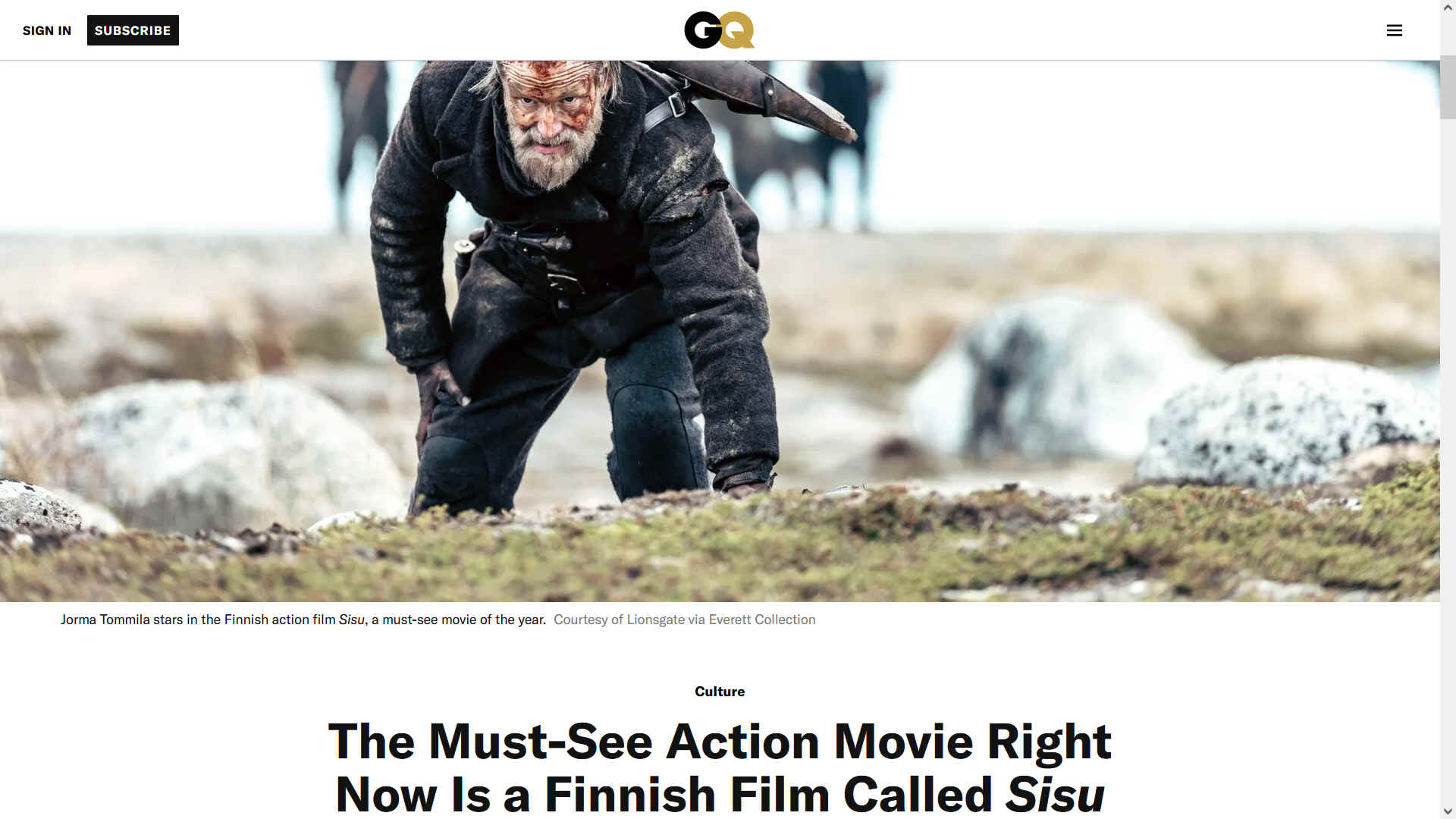
In the United Kingdom, The
Colonial is Sisu, thrust into a world of Nazi Councillors and
Council officials, all on the make, sworn not to reveal the truth and to
watch each other's backs, including Sussex police, guaranteeing them
immunity from prosecutions. No evidence would ever be gathered and
existing files would be systematically destroyed. In the UK,
the state controls the crime scene and Legal Aid does not (did not)
extend to obtaining independent forensic medical evidence. Barrister
Julian Dale, and Solicitor Timothy Stirmey confirmed that to the
defendant. Later, barristers in England went on strike because Legal Aid
fees were so low, they were unable to defend their clients. It is
likely, as alleged, that The Colonials legal team, were bribed
to throw in the towel. The CPS and Sussex police, in on it.
This
story is remarkably aligned with the tale of Victor von Woolfe, and
of course the fictional Rambo, one man crusade against inequality in his
home country. The only real difference between
these stories is the time of the events, and most importantly, that
Victor's story is real. A true story, based on real events between 1981
and 2024, ongoing. Victor, 'The Colonial Bulldog', is an innocent man.
Framed once by Wealden
District Council, as to the truth about the Old
Pump House in 1985, and again by Sussex
Police between 2006 - 2008, when their partners in crime, Wealden,
were about to be unfrocked about the fraud the police had helped to
cover up for over 25 years. If the police were honest, they'd be
prosecuting this council and the officers involved for fraud. The fact
they are sitting on their hands, is proof of their conspiracy and
dishonesty. The Planning Inspectorate are just as guilty, having been
recently apprised of their part in the conspiracy, since they repeatedly
failed to ascertain the truth or make proper enquiries themselves
between 1985 and 2023, as is the State,
for allowing this injustice to persist.
First Blood is a 1982 American action film directed by Ted Kotcheff and co-written by and starring Sylvester Stallone as Vietnam War veteran John Rambo. It co-stars Richard Crenna as Rambo's mentor Sam Trautman and Brian Dennehy as Sheriff Will Teasle. It is the first installment in the Rambo franchise, followed by Rambo: First Blood Part II.
The film is based on the 1972 novel First Blood by David Morrell, which many directors and studios had unsuccessfully attempted to adapt in the 1970s. In the film, Rambo is a troubled and misunderstood Vietnam veteran who must rely on his combat and survival skills when a series of brutal events results in him having to survive a massive manhunt by police and government troops near the small town of Hope, British Columbia.
First Blood was released in the United States on October 22, 1982. Initial reviews were mixed, but the film was a box office success, grossing $125 million and becoming the 13th highest grossing film at the domestic box office and the seventh highest grossing film worldwide. In 1985, it also became the first Hollywood blockbuster to be released in
China, holding the record for the largest number of tickets sold for an American film until 2018. Since its release, it has been reappraised by critics, with many highlighting the roles of Stallone, Dennehy and Crenna, and recognizing it as an influential film in the action genre.
Its success spawned a franchise, consisting of four sequels (co-written by and starring Stallone), an animated television series, a comic books series, a novel series and several video games.
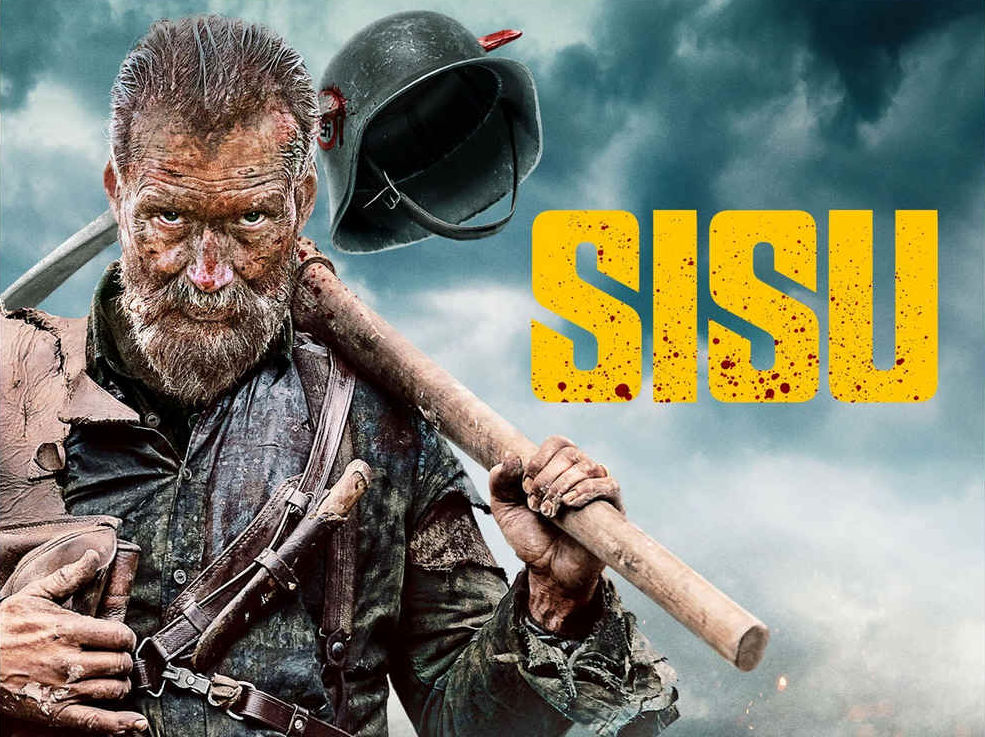
PLOT
Vietnam War veteran John Rambo goes to a lake house looking for an old comrade, only to learn his friend died of cancer over a year earlier, brought on by exposure to Agent Orange during the war. He offers his condolences to the soldier's widow for her loss and gives her a photo of the pair and the rest of their unit, Baker Team.
Continuing his travels, Rambo reaches the town of Hope, Washington. The sheriff, Will Teasle, heads him off and drives him to the outskirts of town, explaining that he considers it his job to keep drifters out of Hope. Neglecting the sheriff's warning, Rambo returns to Hope, prompting Teasle to arrest Rambo on charges of vagrancy, resisting arrest, and possessing a concealed knife. Led by the sadistic chief deputy Art Galt, Teasle's deputies abuse Rambo, triggering flashbacks of the torture he endured in Vietnam. When they try to dry shave him with a straight razor, Rambo snaps, fights his way out of the sheriff's station, regains his knife, and flees on a motorcycle into the woods. Teasle organizes a search party with rifles, dogs, and a helicopter.
Defying Teasle's orders, Galt attempts to shoot Rambo from the helicopter. Cornered on a high cliff, Rambo leaps into a tree, injuring his right arm. With Galt still shooting at him, Rambo throws a rock at the helicopter, cracking its windshield and causing the pilot to briefly lose control. Losing his balance, Galt falls to his death on the jagged rocks. Rambo tries to surrender to Teasle, reasoning that Galt's death was an accident and that he wants no more trouble, but the deputies shoot at him, and he flees. Other deputies warn Teasle that Rambo is a lethal Green Beret, war hero, and Medal of Honor recipient, but Teasle swears revenge and continues the search.
Using booby traps and his bare hands, Rambo kills the dogs and non-lethally subdues all the deputies and captures Teasle, holding a knife to his throat and threatening war if he does not give up the pursuit, before retreating further into the woods. The Washington State Patrol and Washington National Guard are dispatched to assist Teasle, along with Rambo's mentor and former commanding officer, Colonel Sam Trautman. Trautman advises that Rambo should be allowed to escape to the next town to defuse the situation, then be permitted to surrender peacefully later, but Teasle, confident that Rambo is hopelessly outnumbered, refuses. Teasle allows Trautman to contact Rambo to persuade him to surrender, but Rambo refuses, condemning Teasle and his deputies for their abuse and citing that they "drew first blood".
At the entrance of an abandoned mine, a National Guard detachment corners Rambo. Ignoring Teasle's instructions to wait for his arrival, the guardsmen fire a rocket launcher, collapsing the entrance and seemingly killing Rambo. Rambo survives and, finding a way out, hijacks a military truck carrying an M60 machine gun and ammunition and returns to Hope to cause as much damage as possible. In an effort to distract the authorities, Rambo blows up a gas station, cuts power to most of the town, destroys a sporting goods store, and shoots up the sheriff's station. Trautman, understanding that Teasle is outmatched, tries again to convince him to leave Rambo be; Teasle ignores his orders and tries to hunt for Rambo on the station's roof, but is shot and wounded by him.
As Rambo prepares to kill Teasle, Trautman appears and warns Rambo that he will be killed unless he surrenders, reminding him that he is the last survivor of Baker Team. Rambo vents about the horrors of war and his traumatic experiences—watching his friends die in Vietnam, being treated poorly when returning home, being unable to hold a job, and being forgotten despite his sacrifices—and breaks down crying as he recounts how a good friend was killed by a Viet Cong child soldier using a shoeshiner box wired with explosives. After being comforted by Trautman, Rambo surrenders and is taken into federal custody, while Teasle is taken to a waiting ambulance for transport to the hospital.
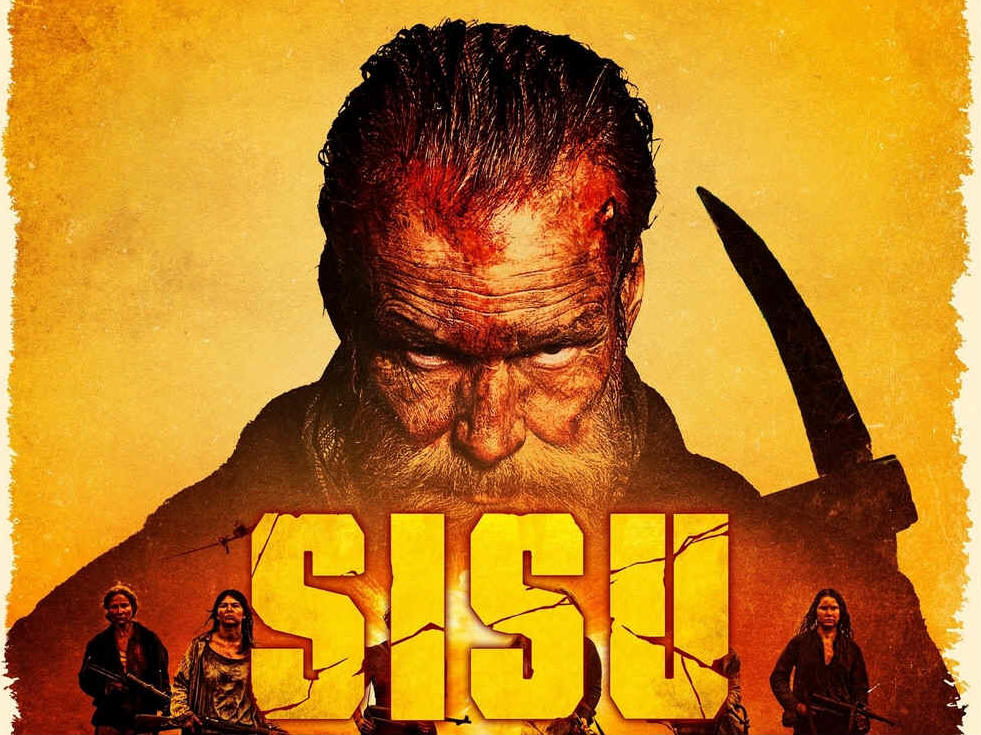
CAST
- Sylvester Stallone as John J. Rambo
- Richard Crenna as Colonel Samuel R. "Sam" Trautman
- Brian Dennehy as Sheriff William "Will" Teasle
- Bill McKinney as Captain Dave Kern
- Jack Starrett as Deputy Sergeant Arthur "Art" Galt
- Michael Talbott as Deputy Balford
- Chris Mulkey as Deputy Ward
- John McLiam as Orval Kellerman
- Alf Humphreys as Deputy Lester
- David Caruso as Deputy Mitch Rogers
- Don MacKay as Deputy Preston
- David Crowley as Deputy Shingleton
- Patrick Stack as Lieutenant Clinton Morgen
PRODUCTION
In 1972, Lawrence Turman at Columbia Pictures bought the film rights to First Blood for $175,000. Richard Brooks was slated to direct, and intended to have the film be an allegory on differing American perceptions of
World War II and Vietnam War veterans, with Sheriff Teasle portrayed more sympathetically than in the novel. The film would have ended with Teasle ordering his men to drop their guns to try to reason with Rambo, who would have then been fatally shot by an unknown assailant. Brooks planned to start shooting First Blood in New Mexico in December 1972. The film did not proceed because the Vietnam War was still underway and Brooks left the project.
Afterward, John Calley purchased the rights at Warner Bros. Pictures for $125,000 with the thought of casting either Robert De Niro or Clint Eastwood as Rambo. A screenplay was written by Walter Newman with Martin Ritt intended to direct. The film would have criticized American military culture and portrayed Colonel Trautman as the film's villain, ending with both Rambo and Teasle dying. Sydney Pollack and Martin Bregman also considered directing the film, with Bregman hiring David Rabe to write a script. After Bregman departed Mike Nichols considered directing Rabe's script.
William Sackheim and Michael Kozoll wrote the screenplay that would be the basis of the final film in 1977, originally intending for John Badham to direct. Producer Carter DeHaven purchased Sackheim and Kozoll's script from Warner Bros. for $375,000. DeHaven secured the Cinema Group as a financer and hired John Frankenheimer as director with production to begin in Georgia. This was also the first version of the script in which Rambo survived the film. However, the project stalled again after the distributor Filmways was acquired by Orion Pictures.
After Mario Kassar and Andrew G. Vajna of Anabasis Investments read the book, they got interested in doing an adaptation as the first production of their studio Carolco Pictures funded by "in-house sources". They purchased the film rights from Warner Bros. for $375,000 and Sackheim and Kozoll's script for $125,000 in 1981. Ted Kotcheff, who had been involved in the project in 1976, returned after Kassar and Vajna offered to finance one of his projects. Kotcheff offered the role of John Rambo to Sylvester Stallone, and the actor accepted after reading the script through in a weekend.
Various scripts adapted from Morrell's book had been pitched to studios in the years since its publication, but only Stallone's involvement prompted its production. The time since the end of the Vietnam War and Stallone's star power after the success of the Rocky films enabled him to rewrite the script to make the character of John Rambo more sympathetic. Morrell's book has Rambo kill many of his pursuers, and Kozoll and Sackheim's draft had him killing sixteen people, but in the movie Rambo does not directly cause the death of any police or national guardsmen. Stallone also decided to let Rambo survive the film, unlike in the book. A suicide scene was filmed but Kotcheff and Stallone opted to have Rambo turn himself in at Trautman's urging. Stallone did an estimated seven revisions of the script. Kotcheff requested further work be done on the script, which was performed by Larry Gross and David Giler.
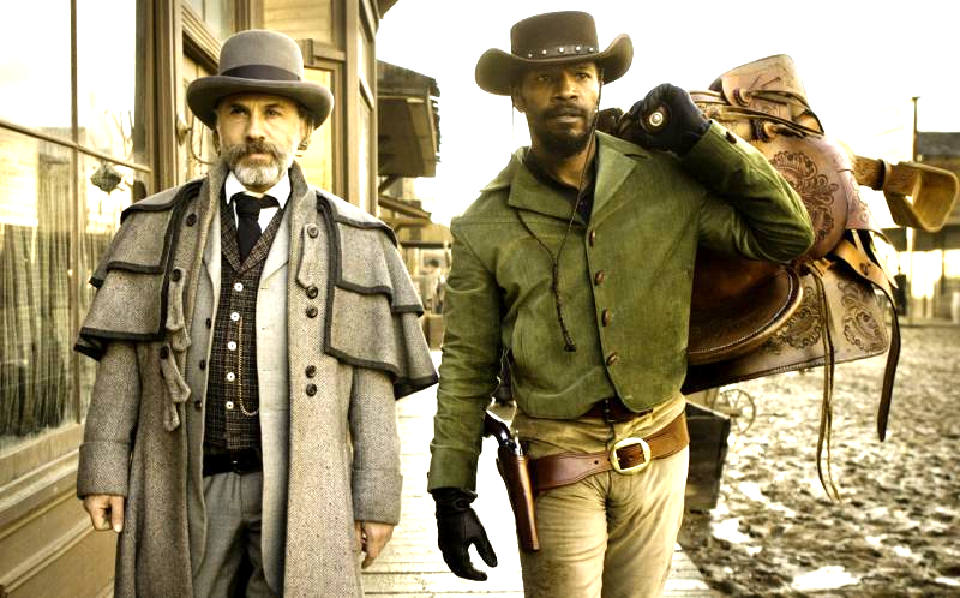
...
CASTING
Brooks originally wanted to cast Bette Davis as a psychiatrist and either Burt Lancaster or Lee Marvin as Sheriff Teasle. When the project was purchased by Warner Bros., Robert De Niro and Clint Eastwood were each considered for the role of Rambo. Ritt intended to cast Robert Mitchum as Teasle and Paul Newman as Rambo. Pollack considered Steve McQueen but then rejected him because they considered him too old to play a Vietnam veteran from 1975. James Caan, Burt Reynolds and Robert Redford were also considered.
Rabe developed his screenplay with Al Pacino in mind for the role and had several conversations with the actor, who wanted to portray Rambo as a force of nature after seeing the film Jaws. However, Pacino decided not to be involved because he found the story too dark. When Badham was considered as director he wanted to cast John Travolta as Rambo, George C. Scott as Trautman, and either Gene Hackman or Charles Durning as Teasle. Frankenheimer considered Powers Boothe, Michael Douglas, and Nick Nolte as Rambo before casting Brad Davis because of his role in Midnight Express. Dustin Hoffman was offered the role of Rambo but turned it down.
For the role of Sheriff Teasle, Kassar and Vajna approached Academy Award winners Hackman and Robert Duvall but both turned the part down. Marvin, another Oscar winner, turned down the part of Colonel Trautman. James Mason and Richard Jaeckel were also considered. Kirk Douglas was eventually hired, but just before shooting began, Douglas quit the role of Colonel Trautman over a script dispute; Douglas wanted to retain the novel's original ending of Rambo and Teasle fatally wounding each other, Trautman finishing Rambo with a kill shot, then sitting with the dying Teasle for the sheriff's final moments. Douglas also wanted Trautman to have more screentime. Rock Hudson was approached as a replacement but was soon to undergo heart surgery and had to pass up the chance to work with Stallone. Richard Crenna was quickly hired as a replacement; the role of Trautman became the veteran character actor's most famous role, a performance for which he received much critical praise.
FILMING
The film was shot in the Fraser Valley of British Columbia on a $15 million budget beginning on November 15, 1981, and continuing until April 1982. The town scenes in the movie were shot in Hope and the nearby Coquihalla Canyon Provincial Park, called Chapman Gorge in the film, while the rest of the movie was shot in Capilano Canyon, Golden Ears Provincial Park and Pitt Lake in Pitt Meadows. During the production Buzz Feitshans replaced producer Ed Carlin, who suffered a heart attack.
The locations chosen for the film initially experienced unseasonably warm and sunny weather during the filming, which posed challenges since the crew had counted on an overcast setting. However, a period of heavy snowfall beginning in January 1982 delayed the production by two months. Other delays were caused by injuries to the cast during stunts, including Stallone sustaining a serious back injury and several broken ribs, in particular, due to performing his own stunt of dropping off a cliff and into a tree. Since the production ran over schedule, Crenna's role in the film was cut in order to avoid having to pay him higher fees as specified in his contract.
The firearms used in the film had to be imported into Canada because of the country's firearms regulation. In January 1982 over $50,000 worth of firearms—including fourteen M16 rifles, three Remington shotguns, two .44 Magnum revolvers, and eleven Colt AR-15 rifles—were stolen from the set. Although the guns had been modified to shoot blanks, the Royal Canadian Mounted Police claimed that they could be easily modified to fire live ammunition. After the incident the set was guarded by the Canadian Army, whose soldiers also served as extras in the film.
POST PRODUCTION EDITING
The first rough cut of the film was between three and three-and-a-half hours long. According to Sylvester Stallone, it was so bad that it sickened his agent and him. Stallone wanted to buy the movie and destroy it thinking that it was a career killer. After heavy re-editing, the film was cut down to 93 minutes; this version was ultimately released in theaters. The ending used in the finished film was shot in March 1982, after the original one was deemed unsatisfactory.
Kassar and Vajna sought either Warner
Bros. 20th Century
Fox, or Paramount Pictures as a distributor, displaying an 18-minute promotional reel to studios. Although they secured international distributors, they were unable to locate a domestic distributor to the film until they sent a longer 55-minute reel to the American Film Market. After Warner Bros., and Paramount expressed interest, Orion Pictures agreed to the domestic distribution of the film.
SOUND TRACK
The film's score was composed and conducted by Jerry Goldsmith, whose theme "It's a Long Road" added a new dimension to the character, and featured in the film's three sequels and animated spin-off. The soundtrack was originally released on LP by the Regency label, although it was edited out of sequence for a more satisfying listen. The album was reissued on CD with one extra track ("No Power") twice, first as one of Intrada Records's initial titles, then as an identical release by Varèse Sarabande. The complete score was released by Intrada in a 2-CD set, along with a remastered version of the original album (with the Carolco logo [previously released on La-La Land Records's Extreme Prejudice album] and the Rambo: First Blood Part II trailer music added), on November 23, 2010, as one of their MAF unlimited titles.
BOX OFFICE RECEPTION
First Blood topped the U.S. box office for three weeks in a row, and its $6,642,005 opening weekend was the best October opening at the time. The film ended as a significant financial success, with a total gross of $51 million domestically, the highest-grossing film of the fall, and the 13th highest-grossing film of the year.
The film grossed $125 million worldwide, against a $15 million budget. It was notably the first major Hollywood blockbuster to be released in China, where it was released in 1985. It sold 76 million tickets in China, the highest for a foreign Hollywood film up until 2018.
CRITICS
The film received mixed to positive reviews from critics, and three lead actors received praise for their performances. In his review, Roger Ebert wrote that he did not like the film's ending, but added it was "a very good movie, well-paced, and well-acted not only by Stallone ... but also by Crenna and Brian Dennehy." He commented, "although almost all of First Blood is implausible, because it's Stallone on the screen, we'll buy it," and rated the film three out of four stars.
The New York Times film critic Janet Maslin described Rambo as a "fierce, agile, hollow-eyed hero" who is portrayed as a "tormented, misunderstood, amazingly resourceful victim of the Vietnam War, rather than as a sadist or a villain." Maslin also praised the film's story for its "energy and ingenuity". Conversely, Variety called the film "a mess" and criticized its ending for not providing a proper resolution for the main character. First Blood has been considered as belonging to the vetsploitation subgenre.
In 2000, BBC film critic Almar Haflidason noted that Stallone's training in survival skills and hand-to-hand combat gave the film "a raw and authentic edge that excited the audiences of the time."
Film.com and Filmsite regard First Blood as one of the best films of 1982, and in 2008 it was named the 253rd greatest film ever by Empire magazine on its 2008 list of The 500 Greatest Movies of All Time.
On review aggregator Rotten Tomatoes, the film has an 86% approval rating based on 49 reviews, with an average rating of 7.20/10. The site's critics consensus reads, "Much darker and more sensitive than the sequels it spawned, First Blood is a thrilling survival adventure that takes full advantage of Sylvester Stallone's acting skills." On Metacritic, the film has a weighted average score of 61 out of 100 based on 15 critics, indicating "generally favorable reviews".
James Berardinelli of ReelViews called the film "a tense and effective piece of filmmaking". He noted that the film's darker tone, somber subtext, and non-exploitative violence allowed the viewer to enjoy the film not only as an action/thriller but as something with a degree of intelligence and substance. On Stallone's performance, he wrote "it seems impossible to imagine anyone other than Stallone in the part, and his capabilities as an actor should not be dismissed". In the 2010 edition of his Movie Guide Leonard Maltin gave the film one-and a half stars out of four, saying that it "throws all credibility to the winds about the time [Rambo] gets off with only a bad cut after jumping from a mountain into some jagged rocks".
MOVIES
& TV
Django
Unchained 2012
Double
Jeopardy 1999
Enemy
of the State 1998
Mr
Bates Vs The Post Office (Horizon) 2024
John
Wick 2014
Gladiator
2000
Rambo
First Blood 1982
Rules
of Engagement 2000
Sisu
2023
The
Bonfire of the Vanities 1990
The
Crown, Netflix 2013 - 2023
The
Fugitive 1993
Yes
(Prime) Minister 1980 - 1988
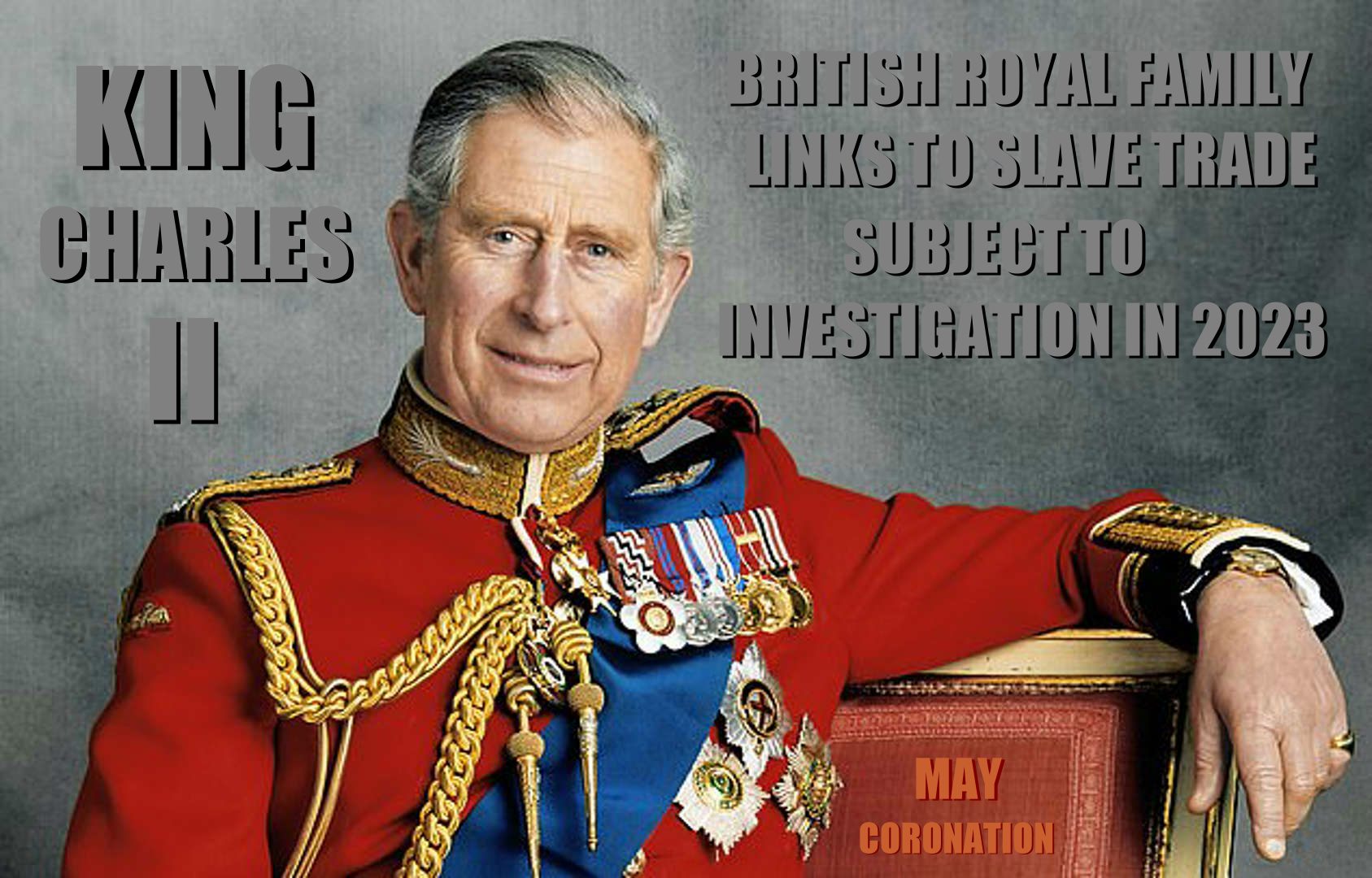
|



